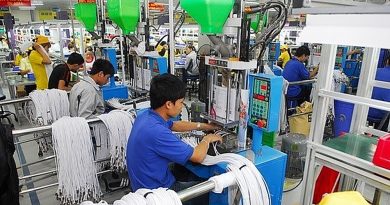Vietnam’s startup scene picks up pace
Foreign funds tend to pour a great deal of money into Vietnamese startups with novel ideas. However, there are still some hurdles to ensure the country becomes a big magnet for overseas investment into startups.
Last week, Next100, an early-stage startup fund worth $10 million by NextTech Group, was introduced into Vietnam’s market, marking a significant milestone in its journey to support the country’s entrepreneurs in solving the trickiest hurdles during the early stages of business development. Speaking at the launch, Nguyen Hoa Binh, founding partner of the startup which follows a hybrid model in the combination of venture builder, ecosystem, and venture capital, emphasised that it would be positioned as “a startup soulmate with a wish to accompany founders to overcome obstacles on the path to success at optimum time and cost.”

Founded in 2001, NextTech boasts nearly 20 years of startup history and a current ecosystem of close to 20 digitalised platforms operating in Vietnam, as well as eight other markets across Southeast Asia and China. Currently, the group holds tech brands like mPoS.vn, VIMO, NganLuong.vn, Boxme, FastGo, and more.
The NextTech example is just one of major investment being pumped into startups today. Nearly 20 overseas funds such as Golden Gate Ventures, 500 Startups, and Warburg Pincus have recently committed to pouring VND10 trillion ($434.7 million) into local startups over the next three years, making the country one of the most dynamic startup hubs in Southeast Asia.
Huge foreign interest
Earlier this year, after receiving $28 million investment from Standard Chartered and a $5.7-million fund from Goldman Sachs, Vietnam-based fintech startup Momo successfully raised approximately $100 million in its Series C funding round from international private equity Warburg Pincus. It was one of the largest single funding rounds ever raised by a startup from Vietnam.
Similarly, Chris Yeo, head of investment arm Grab Ventures, last month confirmed Grab’s ramping up of business and investment in Vietnam as it sees “increased deal flow on potential opportunities.”
According to the latest statistics by the Topica Founder Institute, the country’s startup ecosystem has seen impressive growth in the number of businesses with investment for startups hitting $889 million in 2018, tripling the total compared to 2017 and being six times higher than that in 2016.
Just one week ago, Vietnamese data scientist Nguyen An Nhien, founder of Trusting Social, announced that his AI and data-oriented startup has lured a $25 million investment from high-profile funds like Sequoia Capital, 500 Startups, and BeeNext in its first round.
Hurdles remain
Clarifying the factors behind the large gap, Piro pointed out capital raising is one of the hardest aspects in the startup scene. In addition, Vietnam’s startups suffer from the country’s incomplete legal issues, namely the lack of laws that govern newer forms of business, which makes seeking investment extremely difficult for them.
To favour local startup deals, according to Piro, laws that govern new business models need to be clarified and updated. Plus, the country’s underdeveloped distribution infrastructure presents another challenge for businesses, particularly e-commerce players.
In fact, the Vietnamese government has been attempting to solve such issues. “The government has been working and implementing supporting policies to encourage innovative activities, thus creating the most favorable conditions for the development of startups,” said Minister of Planning and Investment Nguyen Chi Dung. “We are aware that Vietnam needs to drastically take the necessary measures to align with the Fourth Industrial Revolution.”
According to NextTech’s report, the majority of startups will be unable to overcome hurdles and will have to shut down within one or two years of operation. Some internal factors, in fact, are all linked to the lack of soft skills and support.
One step the government can take is to invest more in academic education, soft skills training, and business sharing lessons alike, Piro of Indochina Capital suggested. This knowledge can come from educational institutions, the businesses, or investment funds holding workshops.
Vietnam is expectedly sensing a great opportunity to become the newest hub for startups across Southeast Asia. Thus, money is pouring in and valuations are soaring as investors start to bet big on the country’s rapid growth, huge market, and digital-savvy customers.
Source: vir.com.vn










